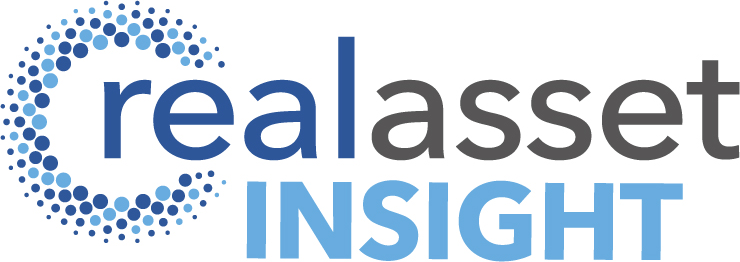Outlook 2021: Investors head for safety in Germany’s gateway cities

Safe havens benefit as residential and student housing markets show resilience in pandemic. Nicol Dynes reports.
According to experts, Germany is in a good place and investor interest remains high, despite the impact of the coronavirus pandemic. “There’s a lot of capital out there ready to be invested and allocations have not decreased,” says Thomas Veith, partner, leader real estate/real assets at PwC.
“Demand for German real estate is just as strong as before,” adds Carsten Loll, partner real estate, at Linklaters. “Prices have recovered and even increased after the first lockdown in the spring.”
In PwC and ULI’s Emerging Trends in Real Estate: Europe 2021 report, Germany has four cities in the top 10 in terms of development and investment prospects. Berlin is at number one, Frankfurt is in fourth place, Hamburg sixth and Munich seventh.
“German cities are clearly seen by investors as safe harbours,” says Veith. “In general there’s a trend towards gateway cities, which is why London and Paris are back in second and third place on the list.”
Leading the way
Germany leads the way in Europe not just in winning cities but also in strength of returns and investor base. INREV’s Q3 Fund Index, which has just been released, shows that total returns are back into positive territory in Europe after a very negative Q2.
“All European countries are showing positive figures, with the exception of the UK,” says Iryna Pylypchuk, director of research and market information at INREV. “But Germany delivered by far the best performance, with funds outperforming by 80bps on average. This shows the strength of the investment market, anchored to the strength of the local investor base which is the reason why Germany is so well positioned.”

‘For Germany -6.5% is a severe recession. However, the banking sector hasn’t suffered severe damage, so don’t expect NPLs to come to the market.’
Assem El Alami, Berlin Hyp
This year German institutions have invested in their own country. They had a clear field, as the Covid-19 crisis and travel restrictions forced many foreign investors to stay away. That will change in 2021.
“Conditions so far have favoured domestic buyers, managers with multi-country footprints, larger property markets with sufficient critical mass to have teams on the ground,” says Veith. “Our study tells us that foreign capital will be back next year, especially from Asia and other countries in Europe. We expect the diversification of the investor base to continue.”
Downturn but no crisis
There are concerns about the pandemic’s impact on the economy, even if Germany is in a better place than most European countries (GDP is expected to decline by 6.5% in 2020, compared to a EU average of 9.1%).
“For Germany -6.5% is a severe recession, and although there will be a recovery in 2021, weakness will drag on into 2022 and 2023,” says Assem El Alami, head of real estate finance, international key accounts and syndication at Berlin Hyp. “However, the banking sector hasn’t suffered severe damage, so don’t expect NPLs to come to the market.”
Residential in general, and student housing in particular, have shown their resilience this year. In times of recession and high unemployment, people invest in their education and qualifications – and in many German cities young professionals are choosing to live in student accommodation.

“We have shifted our focus to core and core-plus and to residential assets,” says Nils Hübener, CIO of CORESTATE Capital Group. “We have a positive view of student housing and much more needs to be built in Germany. There’s a lot of interest on the investor side across Europe because it’s recognised as a sector that will benefit from the economic crisis.”
“Resi has done better than most asset classes this year in Germany, and rented resi has been the best performer,” adds Samuel Vetrak, CEO of Bonard. “In Europe student housing occupancy rates have declined by 10%, but in Germany they have gone from 98% to 95-97%, showing how resilient the asset class is.”
Institutional investors, especially from the US, are targeting student housing in Germany, he adds, because even if yields are low and returns not spectacular, the asset class offers scale and very limited risk.
“We see a significant increase in allocations to operational real estate like resi, outpacing the growth of allocations to offices,” says INREV’s Pylypchuk.
Banks are on board too. “Everyone is eager to finance residential because it’s so stable,” says El Alami. “We also like student housing and are happy to finance it.”

‘Our study tells us foreign capital will be back next year, especially from Asia and other countries in Europe.’
Thomas Veith, PwC
It’s important to look at the single asset, he adds, because student housing in a small university town may not be that attractive. But an asset in a city like Berlin, that can be turned into business accommodation or micro-living, is a great investment.
Tech on the rise
Looking ahead, “resi has dominated in 2020, but it will be replaced by tech in 2021”, says Veith. “Resi will remain high on the agenda, but many investors want secure cash flow and are opting for tech-driven asset classes like data centres, energy infrastructure and communication towers.”
The problem with investing in data centres in Germany is the lack of supply.
“In the US and Asia they have large data centre REITs, but there is no such thing in Europe,” adds Veith. “Europe-wide platforms may come in the future. After all, 10 years ago logistics was a very fragmented sector, but now we’ve seen consolidation and many big-ticket deals.”
New sectors are coming up, but it’s too early to dismiss offices, says Loll: “There’s still demand for offices and younger generations want to mix, mingle and share. In 2021, if there’s a vaccine, all that positive energy will be released. I want to be in Berlin for that party.”

